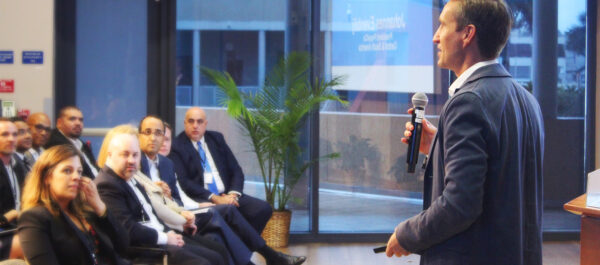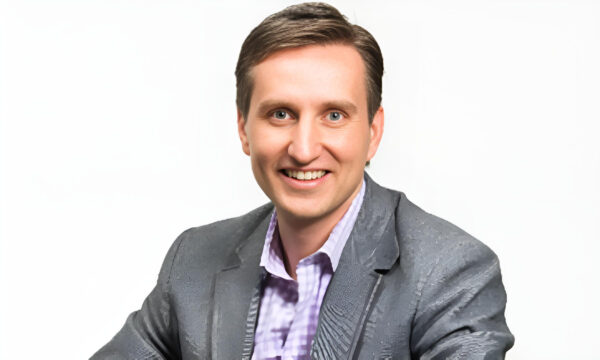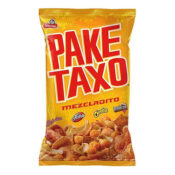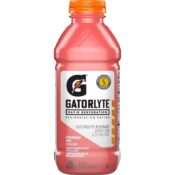When the pandemic hit in 2020, it brought challenges such as supply chain disruptions, inflation, and labor shortages. These would be enough to scare even the most experienced business leaders, but for Johannes Evenblij Garza, it was old news.
Johannes, president, West Division, at PepsiCo Beverages North America, doesn’t just have a multi-decade career in one of the world’s biggest companies—he’s also spent a significant chunk of his career focusing on Latin America, where labor unrest and runaway inflation have often been the norm. These experiences prepared him for the storms of 2020.
His global résumé also taught Johannes to appreciate the importance of local differences and use them to foster innovation, which have become key parts of his career.
Johannes is Mexican and Dutch and he grew up in Mexico. Although his father took him back to the Netherlands after his mother’s death, he returned to Mexico to live with his grandmother as soon as he could. Johannes remembers this decision as a defining moment in his life and career.
At just 17 years old Johannes began to build a life for himself. He secured a 90% scholarship at a prestigious Mexican university while working various jobs to support himself. These early experiences gave him a taste for entrepreneurship.
However, his first big job was at Procter & Gamble. “It was great, because it was almost like having your own business, but you’d have all these great managers who would teach you,” he recalls. The opportunity also saw him secure promotions every six months, leading to an accelerated career.
Upon the advice of a boss, he successfully applied to study for his MBA at Harvard, which pushed him to reevaluate. “You think, ‘Oh, I’m in marketing; I’m in P&G; I’m on top of the world.’ And then you just realize you’re just the blip on the radar, right?” he says. “There’s a lot of other industries, a lot of other companies, and there’s just this whole world outside that you were not even aware of.”

Evenblij Garza speaking at Florida International University
RETURNING ONCE AGAIN TO MEXICO
Then things went full circle, and Johannes returned to Mexico. Not wanting to return to the fast-moving consumer goods industry yet, he decided to start work as a strategy consultant, finding a position at Boston Consulting Group in Mexico City.
However, he soon became jaded. “As a consultant, you can be behind a computer for the whole day and not talk to anybody, right?” he says. “So, I really didn’t like that. And then you’re recommending things, but you’re not necessarily implementing them.”
One day, he got a call from a former colleague at P&G, who offered him a job at a mortgage business he wanted to scale up. He took the opportunity, and the firm went on to become the fourth largest issuer of mortgages in Mexico—but Johannes soon yearned to go back to the world of marketing.
He had friends from P&G working at PepsiCo and used his connections. “I made my list of companies I would love to work for, and in the top five, PepsiCo was one of them,” he says. “I talked to my friend, and he said, ‘Yeah, we have a position opening as a director of marketing. Why don’t you come over?’”
One month later, he was working for PepsiCo, where he started doing marketing for the snack business in Latin America.
THE POWER OF REGIONS
If the first part of Johannes’ career was about learning the power of connections, the next segment focused on the importance of regions when doing business.
While tailoring products to different countries, he had some surprises. “We were trying to sell Doritos and Lay’s products to the Latin American consumer,” he says. “However, many Latin American consumers don’t necessarily like tortillas or potato chips. Instead, we looked for ingredients they do like and created snacks from them.”
He found that consumers in Argentina and Chile loved bread, so the company introduced bread snacks called Twistos. In Mexico, it developed a snack mix product called Paketaxo tailored to the local market—a brand now worth up to $400 million.
Johannes realized that getting insights into what people really want and offering it (while still making a good margin) is crucial. While developing Paketaxo, the team looked at how to get the biggest size possible at the lowest cost and made their mix around it. Many businesses take the opposite approach and put the vision first—but Paketaxo’s success speaks for itself. For years, the company couldn’t even keep up with supply demands.
- Three of the best selling PepsiCo products in Latin America
MOVING INTO MANAGEMENT
As for Johannes’ career, his ambition was to become a general manager. Eventually, he got a role based in the familiar territory of Mexico, managing the iconic brand Quaker Oats.
It proved to be an invaluable opportunity to learn about supply chains. The business supplied most of its oats from the U.S., but a huge storm flooded Cedar Rapids, Iowa, where the plants were—meaning the brand ran out of stock.
Johannes was quick to react. “We needed to find very quickly just supply, and I ended up negotiating with our key competitors to get it because they were vertically integrated,” he says.
Next, he secured a job as CEO of Muller Quaker Dairy and planned to sell yogurt in the U.S. It was the start of the Greek yogurt craze, and the team thought they could transfer the product’s success from Germany. However, it wasn’t transferable to the U.S. due to a lack of scale and differences in consumer preferences. It was yet another lesson in the power of regions, and they ended up shutting it down despite achieving $100 million in sales.
TAKING LATIN AMERICA
Then it was back to PepsiCo as chief commercial officer for Latin America, making him the first person at the company in the role. Over the course of three years, he used Salesforce to bring in an automated sales process.
Then, he became general manager for Central and South America. It was a time in his career when something new was thrown at him every week.
“I had Venezuela; I had Colombia; I had Guatemala. It’s just all different things happening—inflation, currency problems, cash problems.”
Johannes eventually realized that everything came down to understanding how business itself works. In a country like Venezuela, with 100% inflation per week, it’s crucial to manage people and businesses effectively. And that’s exactly what he did.
He also began to focus on empowering communities. In Mexico, the team realized that, of the 1 million partner stores they worked with, 900,000 were small shops. So, they started to train the staff that worked there. Closer to home, a $50 million program called Juntos Crecemos began giving out funding to businesses in different cities across the U.S., recognizing that little stores are points of connection in the community.

THE PANDEMIC ONWARD
Now, Johannes oversees 12,000 people across PBNA’s West Division, and he believes his previous experiences have worked to his advantage.
One memorable event is that, after the purchase of soda cans had been declining for years, everybody suddenly wanted to have soda at home over the pandemic. The company had to bring in cans from other countries, including Saudi Arabia and Colombia.
Then there was an issue of inflation and labor availability. “You really need to do an even better job of developing our team, making sure that they’re in a good place,” he says.
A CONTINUED COMMITMENT TO INNOVATION
Having benefited from such a global career, one thing that Johannes has learned is how different some cities in the U.S. are from the rest of the country. “L.A., together with Miami, are the two big cities in the U.S. that have the least amount of white people,” he says. With large Latino and Asian populations, businesses need to cater to their needs to be successful. One way PBNA’s West Division has facilitated this is through using Spanish-speaking salespeople—almost half of the PepsiCo workforce speaks Spanish.
Johannes has also learned how to take inspiration from other regions. PepsiCo introduced the low-sugar electrolyte drink Gatorlyte, based on Gatorade,, and it proved to be a great success.
As for his advice for young people starting out, he says: “Don’t focus on the money. Focus on the learning, because a lot of people just want to get promoted and get to the next job.” Johannes’ career exemplifies that it’s all about adaptation.

















































